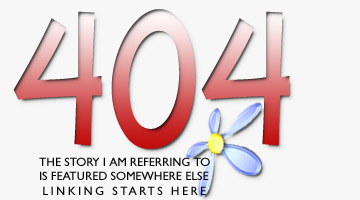Together with Jason Schramm from Shiwej, I’ve decided to start a guestblogging series which will run on both our blogs at about the same time.
Today (November 20th, 2005) is the fifth installment of the series and it is about Nathan Weinberg of the BlogNewsChannel. Nathan talks about growing his own network of blogs, his policies on rumors and linking, and the misinterpretation of the freedom of speech by bloggers.
1. How did you get into blogging?
I guess it just kind of happened. Last year, I was getting bored with editorial duties and the fact that I didn’t write articles as often as I’d like, and I was very interested in Google’s IPO. I was reading so many Google-related websites, that I decided to start a LiveJournal community called ‘InsideGoogle’, hoping that others would contribute and save me the effort of doing all the newsgathering. Instead, people started relying on me to publish, and I moved, first to Blogger, then to my own website at the Blog News Channel. I enjoy it immensely, but I never sat down and said, ‘This is what I want to do’.
2. What is your blog’s name, what is it about?
I write both InsideGoogle [rss] and InsideMicrosoft [rss], and I am trying to grow a small collection of review blogs. InsideGoogle and InsideMicrosoft are about the companies titled, about the industries they play in, about their competitors, and about their employees and corporate culture. Besides that, whenever I find something fun or interesting to blog, I spend a few seconds deciding which blog it belongs more on, and post it there.
3. Are there any policies you follow when reporting on an issue?
I don’t like reporting rumours. When you are dealing with a company like Google, rumours come down the pike multiple times a day, and I have no interest in mindless speculation. As a general rule, I won’t present a rumour as a story, and many times I will ignore the rumour entirely until it has been proven/disproved, and report that.
Besides that, my goal is to be as broad and expedient as possible. While I currently cannot work on my blog 24 hours a day (although that may happen if the money is good), I try to keep one eye on Bloglines at all times, so that if a story happens, I can be one of the first to report it. Half the excitement of a blog is not the reporting of a story, but the thrill of seeing it unfold, and every time I can be a part of that, I think it adds a lot of value other media cannot compete with.
4. What guidelines do you follow when linking to an outside source?
Always link. Link to who I quote, link to whom I get information from, link to who linked to that page, link to who sent me an email pointing me in the right direction. I always link, except when dealing with anonymous sources. There was one incident where I refused to link to a page because it had messy popup ads, but for the most part I link anywhere, even into a bad neighbourhood, using the nofollow if the site is doing something illegal.
5. Do you think you are trustworthy? Why do your readers trust you?
I’d like to believe so. I’ve never screwed a source, never flamed a person who didn’t deserve it, never made anything up, and I avoid stories that sound untrustworthy, even when they come from legitimate sources. I think that if you want to be trusted, you need to hold yourself with dignity. That’s also why I never use profanity directly.
6. Do you think bloggers should be treated as journalists and be privy to the rights and protections that journalists enjoy?
Of course. Many bloggers are indistinguishable from columnists, and many columnists are indistinguishable from bloggers. The protections of a free press in the United States and most other free countries were designed not to protect any sort of media establishment, but to allow citizens public recourse against government actions; to allow accurate information to defeat acquired power. As long as bloggers are publishing information that furthers freedom in this country, the government has no right to stand in their way.
That said, some bloggers think freedom of speech applies to everything. Wrong. Freedom of speech is designed to safeguard the public good. It is not designed to protect you from lying, profanity, false accusations and irresponsibility. If your speech has little value but does significant harm, the government will agree with your right to that speech, but you will still be responsible for the consequences of it. You can say what you want, and no one will stop you. But if the pen be mightier than the sword, then the penalties for misconduct must be equally serious.

Initiated together with Jason Schramm, this guest blogging series will continue to make people aware of the power of linking and the need to give credit to the people who earn it.
Together, we’re improving the Blogosphere, you can help too if you start linking here !
And be sure to check out Jason’s post here.
Note :
Jason and I are not related but have a common field. Jason writes for the BlogNewsChannel, and takes care of Apple Watch, very surprisingly the Apple section of Nathan’s network.
I sometimes write on Inside Google & Inside Microsoft.